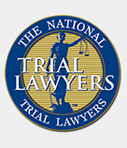 A personal injury lawsuit can be challenging to handle. You must follow various state laws and legal procedures. Hiring an experienced personal injury lawyer is crucial. Without one, you could face an unfavorable outcome in your case.
A personal injury lawsuit can be challenging to handle. You must follow various state laws and legal procedures. Hiring an experienced personal injury lawyer is crucial. Without one, you could face an unfavorable outcome in your case.
Although personal injury lawsuits are time-consuming, your attorney knows how to handle them. They can walk you through each step and help draft the required documentation. They can also gather evidence to prove you are entitled to compensation for your injury.
Understanding the steps involved in a personal injury lawsuit is critical. Knowing what to expect is beneficial even if you seek legal representation. You should adequately prepare for the legal battle ahead and review every step carefully.
What Are the Steps in a Personal Injury Lawsuit?
Before filing a lawsuit, you should hire a lawyer. You likely already have one helping you with your insurance claim. Many accident victims start with a claim and if negotiating a settlement is unsuccessful, proceeding with a lawsuit is the next step.
You can only file a lawsuit if the time period dictated by the statute of limitations has not run out. In Florida, the statute of limitations allows a four-year timeframe to initiate a personal injury lawsuit. That means you have four years from the accident date to file suit against the party responsible for your injury. If the statutory deadline hasn’t expired, you can proceed.
Below are the steps involved in a personal injury lawsuit.
File the Complaint
You initiate a lawsuit by filing a complaint. The complaint is a legal document that contains relevant information regarding the case, such as:
- The names of the defendant and plaintiff
- The types of injuries you sustained
- The person or entity you’re suing
- The legal basis for pursuing action against the defendant
- The amount of compensation you’re seeking
You must file the complaint with the appropriate civil court and pay the required filing fees.
Serve a Summons
You must include the summons with the complaint. A summons is a legal document that notifies the defendant of the legal action taken against them. It also informs them of the available options for responding, such as filing specific documents in court.
You can’t deliver the summons yourself. Only a qualified individual, such as a process server, can complete this task. Once the process server successfully serves the defendant with the complaint and summons, they should provide a document you can file with the court.
Receive an Answer
The defendant must file their answer in civil court within twenty days of receiving the complaint and summons. Their answer should address all the allegations against them in the complaint. They also could pursue counterclaims against you.
If the defendant doesn’t file their answer, your lawyer could file a motion for a default judgment. That means the court can automatically rule in your favor due to the defendant’s failure to respond to the complaint within the required timeframe.
Discovery Process
If the defendant files their answer, you can proceed with discovery. Discovery allows the lawyer from each side to obtain evidence and information from the other regarding the legal matter. Both attorneys typically file various requests for each other, such as:
- Request for Production – A request for production asks the opposing party for copies of physical evidence related to the case, such as medical records, accident scene photos, and billing statements.
- Request for Admissions – The request for admissions includes statements about the case that the other party must admit to or deny.
- Interrogatories – Interrogatories are questions each side creates in writing for the opposing party to answer under oath. Questions can be about the circumstances of the accident, background information, and other details relevant to the case.
- Request for Deposition – A deposition is an opportunity for the parties to verbally question the defendant, plaintiff, or other witnesses under oath.
Schedule a Mediation
Some attorneys might request a mediation during the discovery phase. Opposing parties can meet with a mediator to try to resolve the matter.
The mediator doesn’t have the legal authority to enter a judgment but can facilitate conversations between each side. The mediator can also offer suggestions about how to settle the case to avoid going to trial.
Prepare for Trial
The court will set a trial date. If mediation isn’t successful, you and your attorney will start preparing for the upcoming trial. Preparations often include:
- Jury selection (if it is a jury trial)
- Preparing opening and closing statements
- Obtaining evidence to present in court
- Selecting witnesses to testify
Trial
 During the trial, your attorney and the defense lawyer will begin with their opening statements. Opening statements include relevant facts of the case. Each side can call witnesses to the stand, present evidence, cross-examine each other’s witnesses, and argue their cases in front of the judge and/or jury.
During the trial, your attorney and the defense lawyer will begin with their opening statements. Opening statements include relevant facts of the case. Each side can call witnesses to the stand, present evidence, cross-examine each other’s witnesses, and argue their cases in front of the judge and/or jury.
Judgment
The judge or jury will decide whether they rule in your or the defendant’s favor. If you win the case, you should receive compensation for your injury and resulting losses. If you lose, you might have the option of appealing the decision.
Speak to a Dedicated Personal Injury Attorney Today
The Bruner Law Firm has represented accident victims for 30 years. We fight for our client’s rights and aggressively pursue the maximum compensation possible. When you hire us, you can expect our legal team to be your advocate and seek the justice you deserve.
If you sustained an injury in an accident due to someone’s negligence, call the Fort Walton Beach personal injury lawyers at (850) 243-2222 today for a free consultation.
Related Posts:







